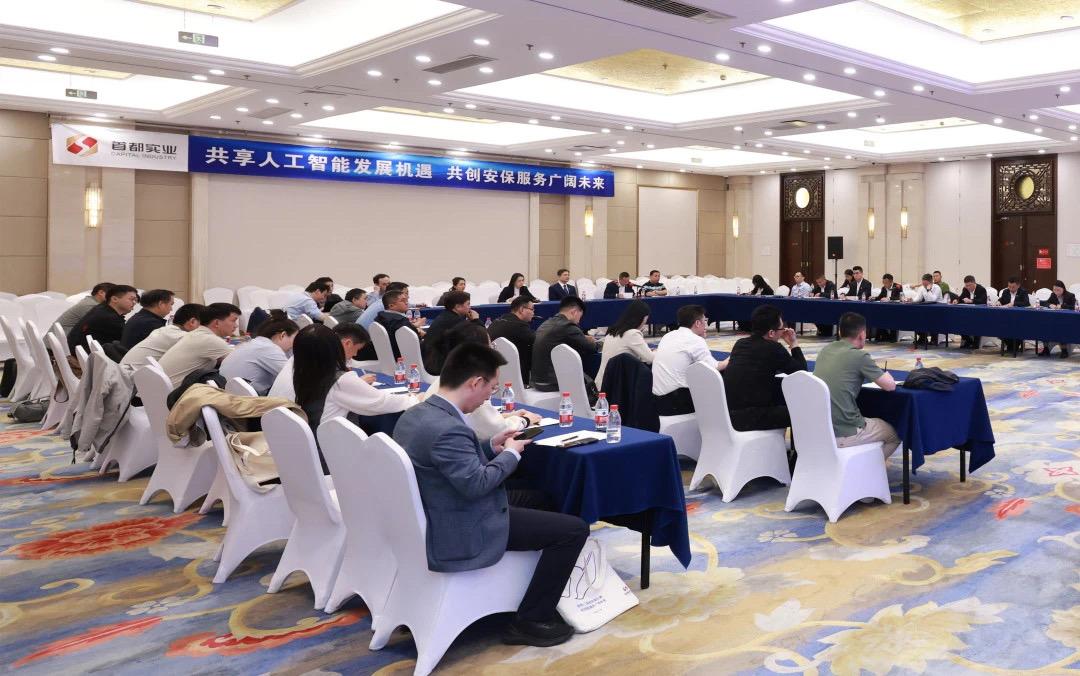HarmonyOS to Redefine Mobile Operating Systems
In November, Huawei officially launched its Mate 70 smartphone series powered by its proprietary operating system (OS) HarmonyOS NEXT, which became the third major global mobile operating system alongside Apple's iOS and Android.
HarmonyOS, China's first fully self-developed mobile OS, represents over a decade of innovation and resilience.
An idea is born
The project traces its roots to 2012, when Huawei founder Ren Zhengfei, inspired by the apocalyptic film 2012, envisioned a "Noah's Ark" for the digital flood ahead. This idea led to the establishment of Huawei's 2012 Labs, where foundational research for a future operating system began.
HarmonyOS was introduced at Huawei's Developer Conference that year.
The system's architecture was revolutionary, enabling seamless connectivity across devices — from smartphones and tablets to wearables, cars, and industrial machines.
At its core, HarmonyOS utilizes a distributed computing framework, enabling developers to create applications that could operate across diverse hardware platforms. This innovation positioned HarmonyOS as more than a mobile OS; it became a universal operating system designed for the Internet of Everything.
Becoming a thriving ecosystem
Developing HarmonyOS was not without its challenges. Initially, the system retained some compatibility with Android's open-source codebase, but Huawei soon transitioned to a fully self-developed "Harmony Kernel." This helped the company to achieve greater independence in areas like data security, privacy and system performance.
Key to the system's success is its robust privacy framework. HarmonyOS introduced groundbreaking measures, such as limiting apps' access to sensitive data and denying permission for unnecessary operations like reading installed app lists. The focus on user protection helped HarmonyOS establish itself as a secure alternative to its competitors.
However, technology was only one side of the coin; building a viable ecosystem posed an even greater challenge.
As Huawei's executive director Richard Yu said, ecosystem development was the "final battle" for HarmonyOS.
Huawei invested over six billion RMB annually to support developers and partnered with educational institutions to train future talent.
By 2023, over 675,000 developers had joined Huawei's Developer Alliance, and the company had established collaborations with more than 300 universities.
This effort bore fruit: leading Chinese apps like WeChat, JD.com, and Xiaohongshu launched Harmony-native versions, while universities like Wuhan University introduced HarmonyOS-focused programming courses, laying a solid foundation for future innovation.
Leading the IoT revolution
By providing a unified platform for smartphones, wearables, industrial machinery, and more, HarmonyOS aims to spearhead the transition to a fully integrated Internet of Things (IoT) ecosystem. Its modular design and distributed architecture significantly reduce development costs and increase operational flexibility, making it a preferred choice for both developers and consumers.
The system's versatility is evident in its applications across industries.
For instance, Huawei has partnered with leading hospitals to enhance wearable health monitoring, using HarmonyOS to detect cardiac irregularities with high precision.
Similarly, its applications in AI, AR/VR and automotive systems signal a promising future in emerging technologies.
By late 2024, HarmonyOS had over 1.5 billion devices and a market share of 17 percent. Its rapid growth underscores its potential to redefine global technology dynamics.
But for Huawei, the journey of HarmonyOS is far from over. With its commitment to innovation, ecosystem development, and talent cultivation, the company is well-positioned to shape the future of smart connectivity.
In the words of a HarmonyOS developer: "The road is difficult, but victory is within sight."







